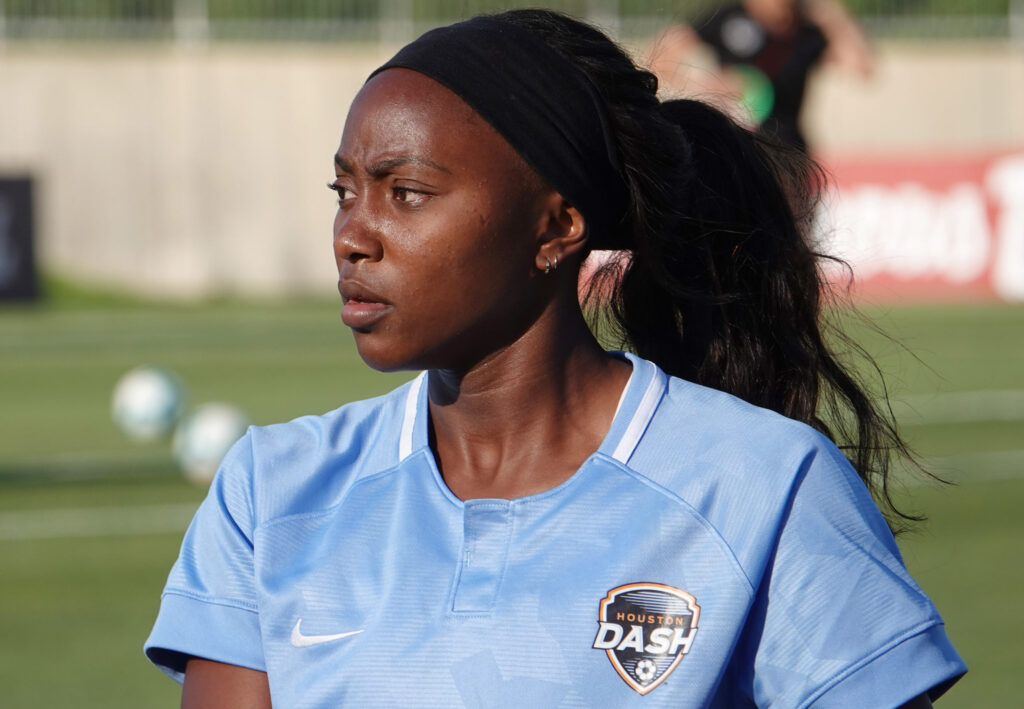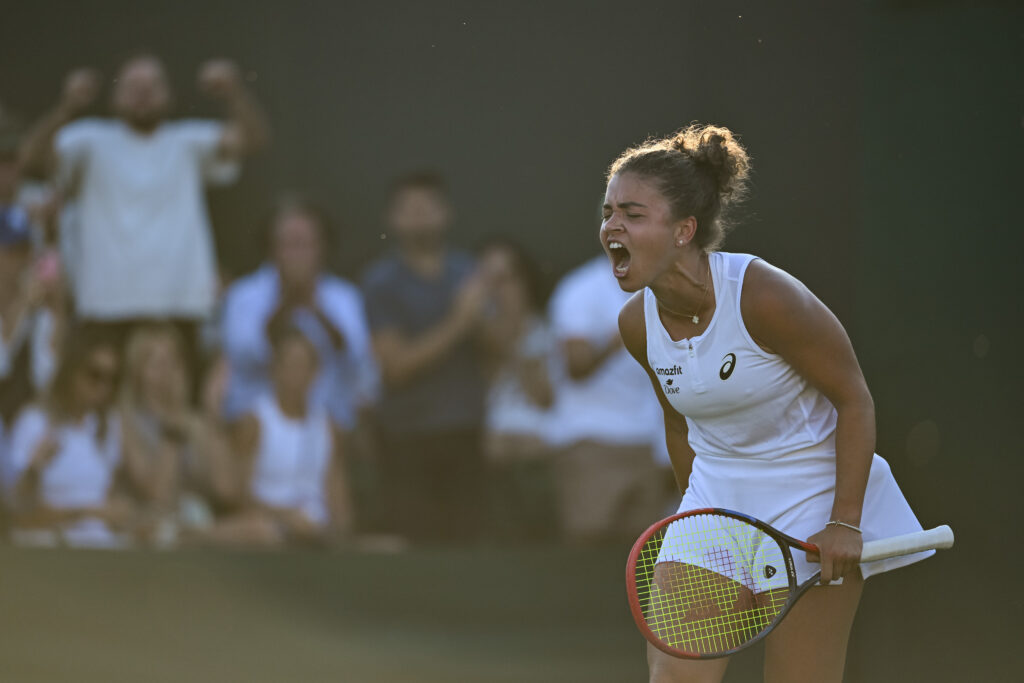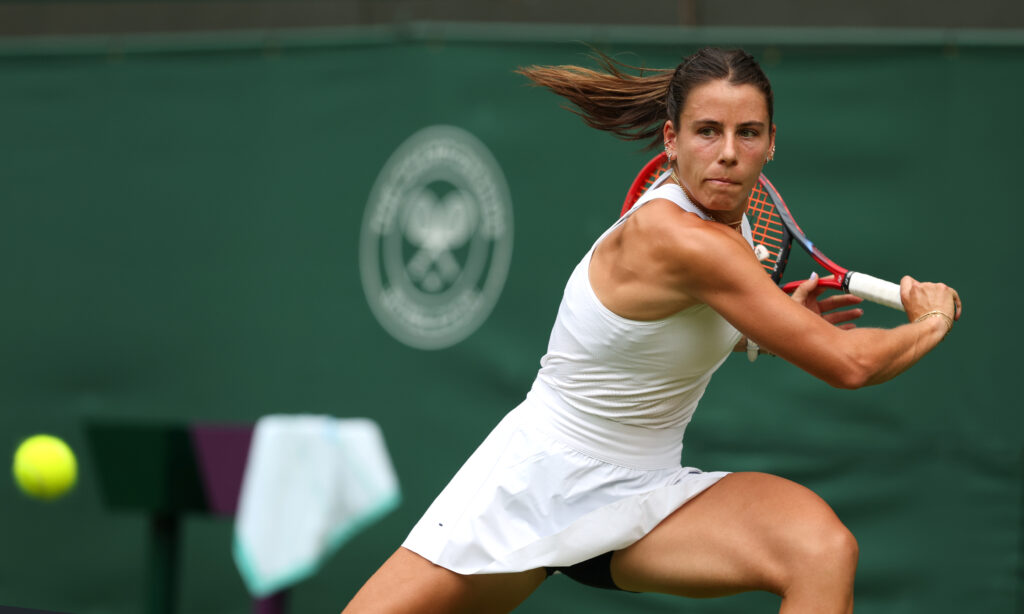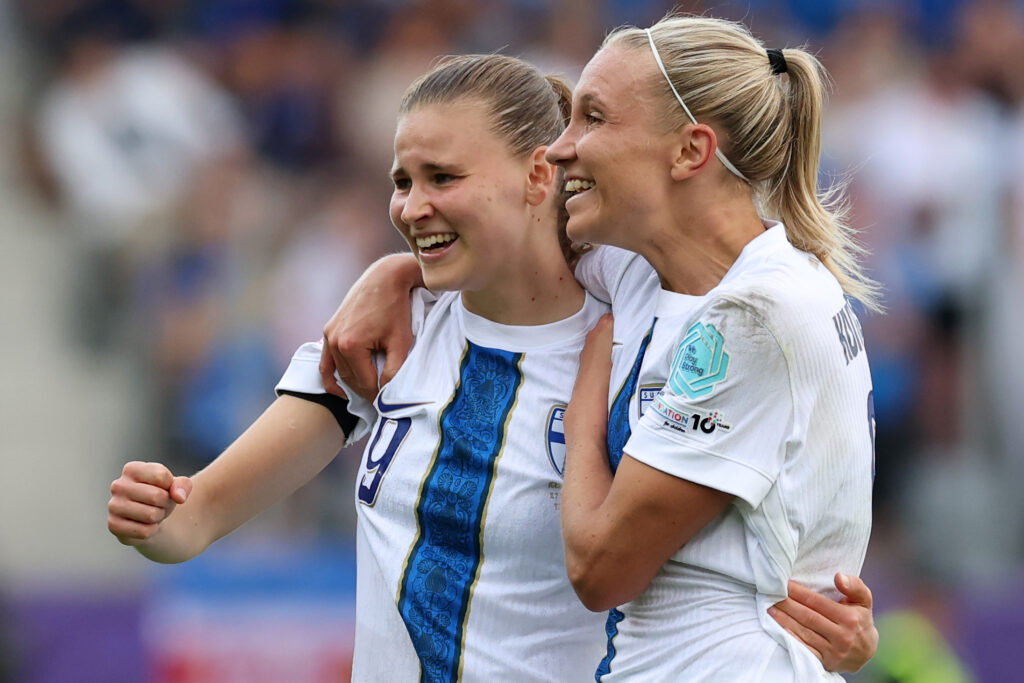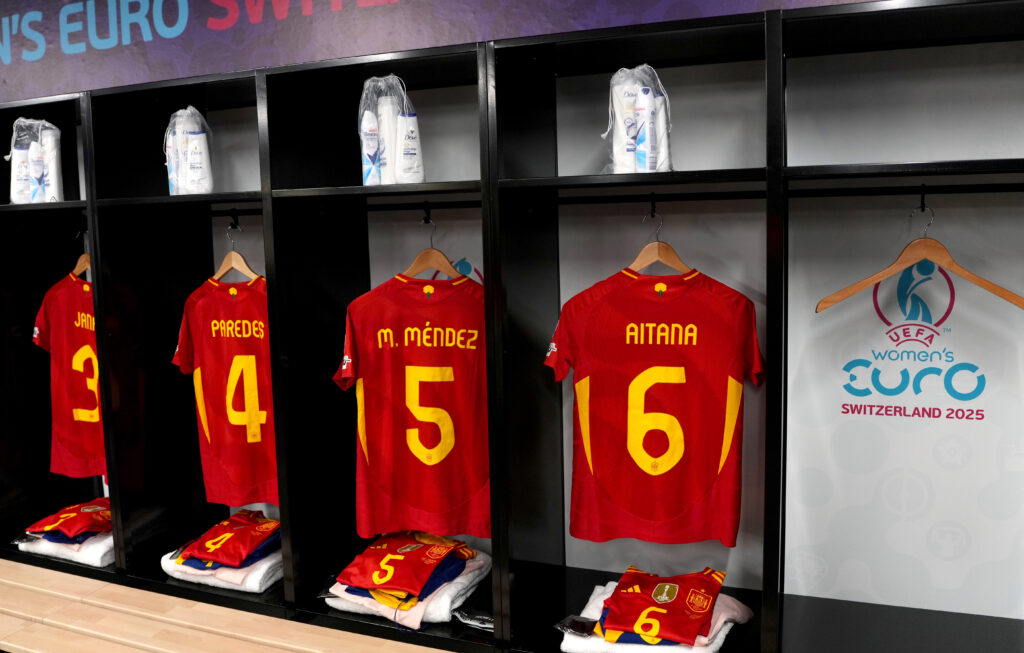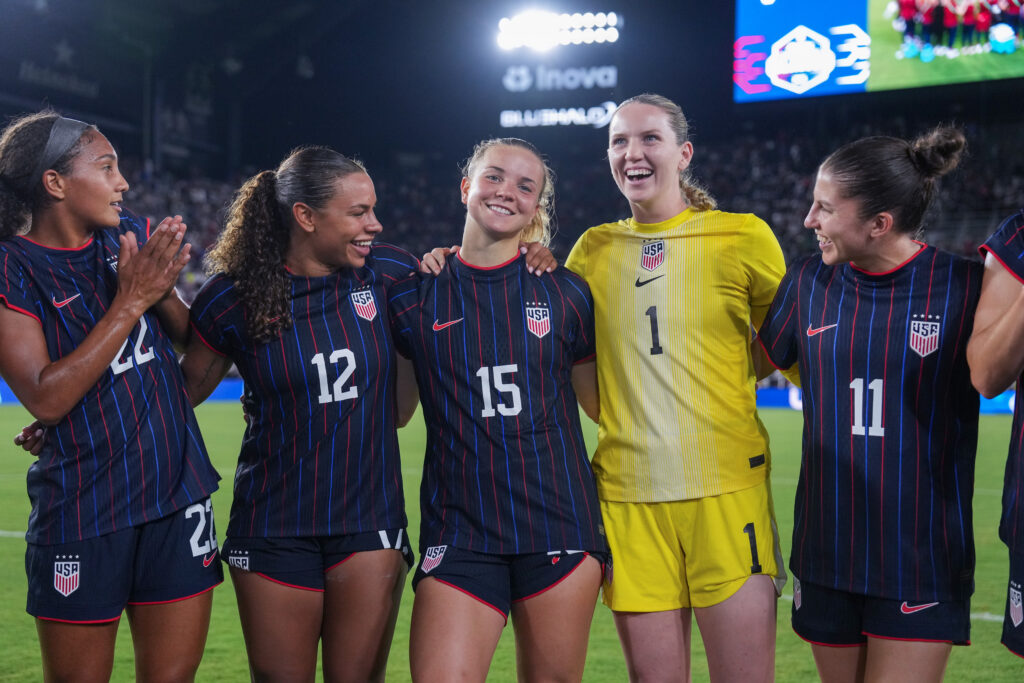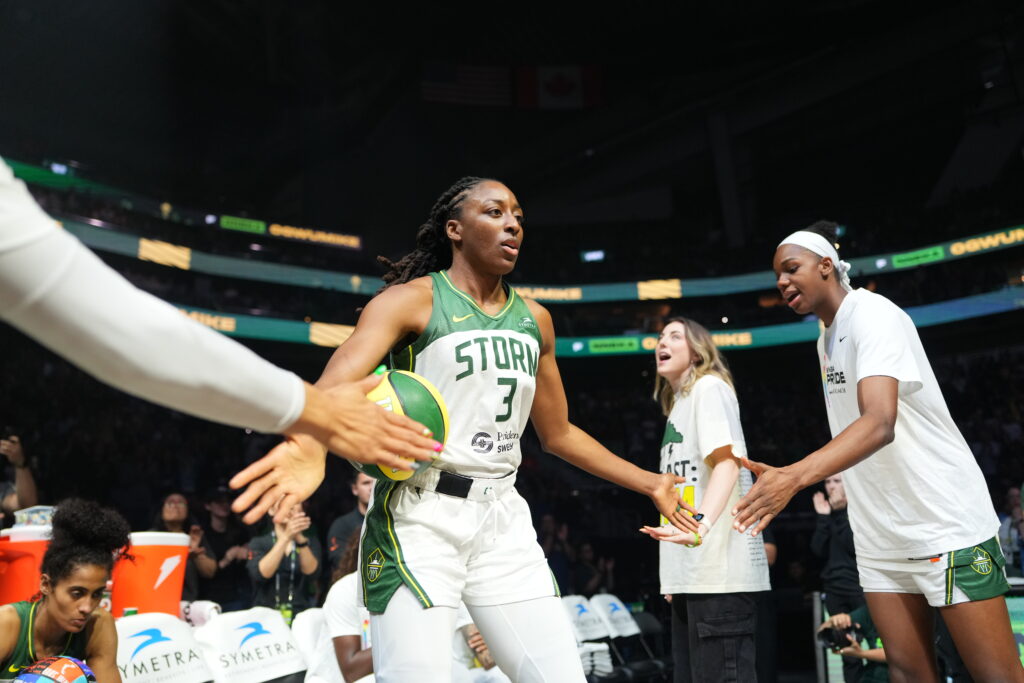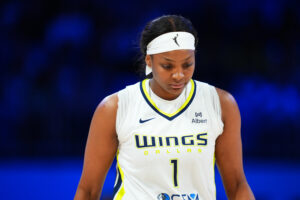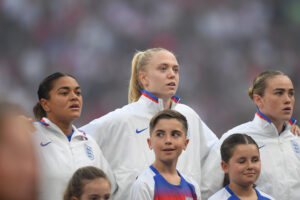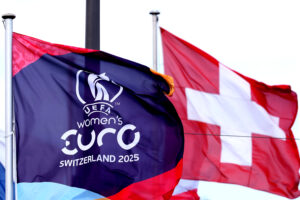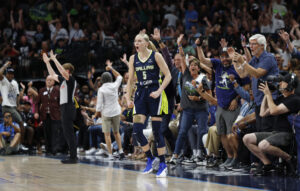Jamia Fields is a forward for the Houston Dash of the NWSL. A graduate of Florida State University, she helped lead the Seminoles to their first ever NCAA title in 2014.
Why do you think it’s important to speak out now?
“It’s very important because we all have our own experiences that I feel like we’ve been suppressing for so many years. Maybe we’ve been in a situation where we felt that we couldn’t really speak out. And I know there’s a divide in the world right now, but I do feel that because so many people are coming out to support this cause, this is a perfect time to join the movement and to really push for change.”
It’s no secret that women’s soccer tends to be, well, pretty white. How has your experience in soccer intersected with some of what’s happening now?
“Yeah, growing up in Southern California, I was always one of the only black girls on my team. I always felt welcomed, but there were definitely times when I felt like the odd one out. And then, going to Florida State, there were a lot of black girls when I got there. I think God did that to give me a different type of experience. There were a lot of different cultures on my team at Florida State. And that was really, really amazing, something that I really needed. I was really immersed in the black culture. That was a real turning point in my life where I actually got to see black is beautiful, first of all. Growing up in Southern California, it was really just blond, blue eyed girls, honestly. But going to Florida State, I was like, ‘Okay.’ You know? There were six black girls on my team at one point. I was like, ‘What is this? This is crazy.’ That was so amazing.”
It’s wild to think that it was only when you were 18 that you saw other people who looked like you on your team. It’s honestly pretty heartbreaking.
“I literally remember mentioning to my parents, like, “There’s other black girls on my team.” Like, “What?” It was such an exciting thing. I was so shocked. And the fact that that’s something that’s shocking is what’s sad. And then, going into the pros, it’s kind of a similar situation where there’s very few black people. You have to be confident in your skin when you’re the minority in that situation. That’s just how it has to be because, like I said, you’re outnumbered. And even if the people are loving, and on many of those teams, I felt loved, it’s still a personal battle. People might still say things that they don’t even know are wrong. It’s a lot.”
What do you think needs to change? I realize that’s a big question.
“I have a lot of friends reaching out, which I’m really thankful for because I feel the love and the support. And that’s just the main thing right now. I feel like people, black people, black women, black men, we need to feel the love and support because it’s been a long time of suppressing feelings and feeling outnumbered. And this is just a weird situation. With this question, I just don’t really know how to answer it all the time… In my life at least, stepping a little bit out of my comfort zone is what helped me grow the most, so I encourage people to do that, even if it’s small steps. Reach out to your black friends or coworkers. Help them feel loved and supported. And then ask each person ‘How can I support you? How can I help you?’ Because everyone’s needs may be different.”
Why do you think that athletes, in particular, are speaking out in such numbers?
“Well, I feel athletes already have it in them to be competitive and to fight. Now they want to fight for what is right. In different sports too, people have a lot of black teammates, and I think that’s causing people to step up. I think it goes back to that competitive desire, though. Athletes have it in them to push for something. And right now, it’s pushing for change, it’s pushing to win against injustice.”
Anything else you’d like to share with our audience?
“I just want to encourage people to continue to push themselves outside their comfort zone and to use their voice. I know everyone’s saying it, but I feel like that is what’s going to create change. I’m also really thankful for you and this platform, because we need platforms like this who are open to talking about racism and are willing to say that black lives matter. These platforms are going to create change.”
